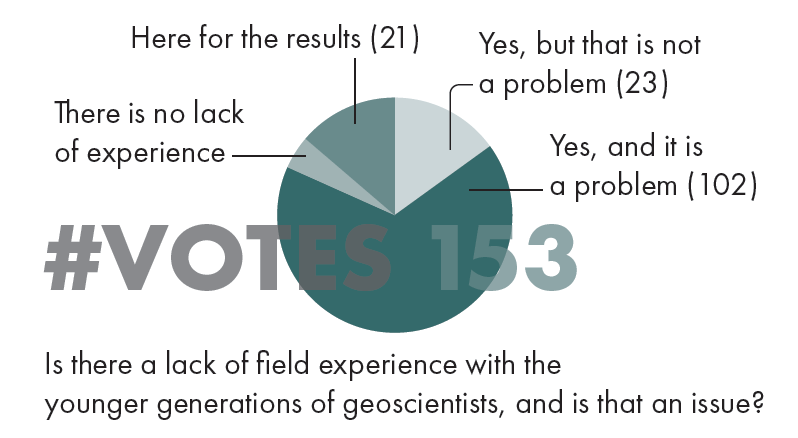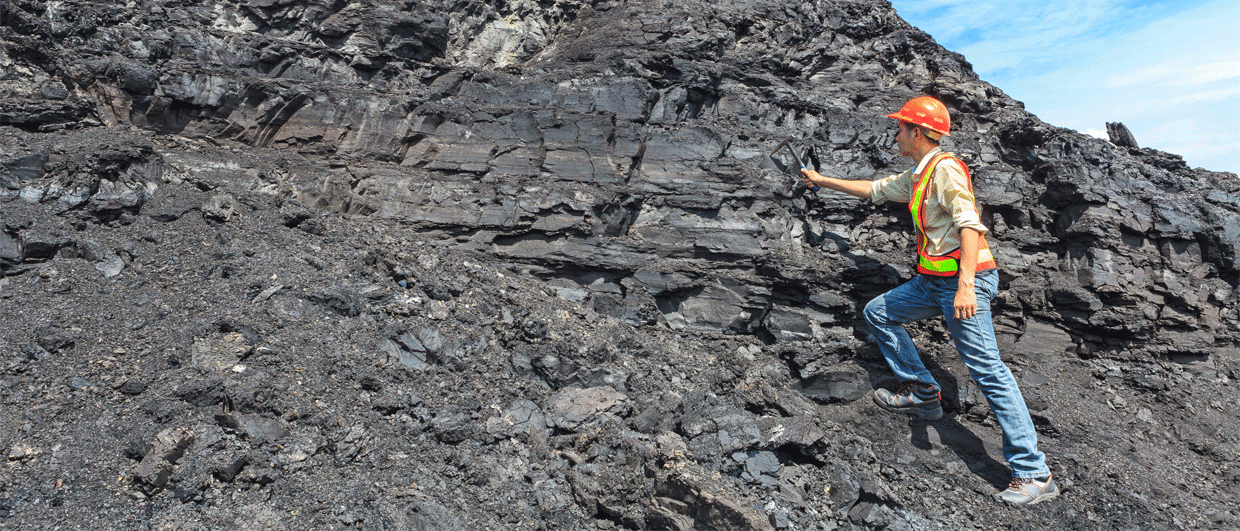At times of better access to digital outcrop imagery, drone footage and satellite shots, is it still worth going into the field to have a look at the rocks in person? Universities offering geoscience degrees may have already concluded that it’s not, given that students spend less time in the field than a few decades ago. But is this a good call? Would it not be better to beat the elements, struggle with scale, and being forced to think 3D whilst comparing scarce outcrops?
Yes, is the answer.
The poll we ran via our LinkedIn page did not leave too much room for doubt; the majority of respondents voted that there is indeed a lack of field experience with the younger generation of geoscientists, and that this is indeed a problem. David Scarlett, operations geologist at TotalEnergies commented: “In order to construct any kind of geological model, you need to be able to recall some fieldwork reference points. Visualisation based on real things is an essential part of model construction.”
Michael Power, who runs Mercator Geological Services, is even more adamant about the need for fieldwork in these days of AI: “If anything, and especially with the rise of AI-assisted exploration solutions, fieldwork is more important now than in the past to ground truth and/or refine targets. AI only works with good data inputs, including good historical data and quality field data that includes good geologists collecting these data and often, refining and changing targets on the fly.”

Bastian Koehrer from Harbour Energy further adds that digital outcrop models are great, but only as an addition. “You only develop a feeling for dimensions, both laterally and vertically, whilst looking at outcrops. And you best discuss your own observations with an interdisciplinary team in the field. I had my most formative “Aha” moments doing outcrop work, and not in front of a workstation.”
Not everybody is on the same page, though. A reasonable group of people acknowledges that younger geoscientists lack field experience, but do not think this is a major issue. It may well be that in quite a few jobs geoscientists end up in, the need for having a broad spectrum of field experience is not required on a day-to-day basis. It is also worth asking the question of how much fieldwork is enough to be a good geoscientist. Again, that is very much driven by the diversity of projects people will be involved with.
And finally, a minority group is of the opinion there is no problem at all when it comes to field experience, whilst yet another reasonable group could not wait until the publication of this article to see the results of the poll.

